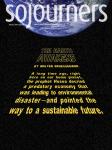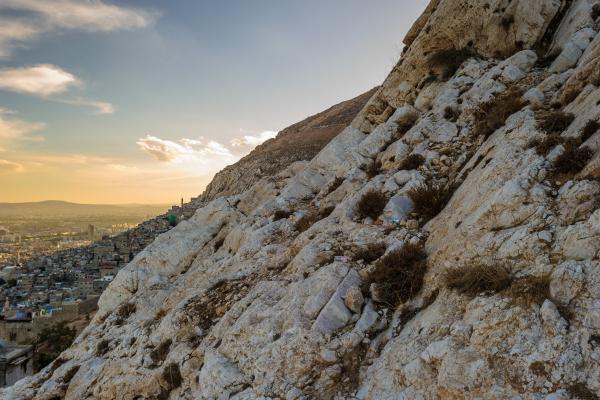EVERY TIME I travel from Erbil, the capital of Iraqi Kurdistan, to Dohuk, Iraq, my drivers point to the same bridge. This, they say, is where ISIS was stopped by U.S. air power, just 15 miles from Erbil. It is a vital reminder that Kurdistan has twice been a safe haven: in the 1991 aftermath of the first Gulf War, to protect the Kurds from Saddam Hussein, and again last year when ISIS was at the city gates.
When I look on the Nineveh Plain just south of Kurdistan, it’s hard not to recall Cyrus the Great, who once conquered this entire part of the world. The book of Isaiah recounts God’s words to the mighty king, a nonbeliever, one who didn’t follow the God of Israel: “For the sake of Jacob my servant, of Israel my chosen, I summon you by name and bestow on you a title of honor, though you do not acknowledge me” (emphasis added).
The chaos and violence in this region continues to drive people from their homes. Currently, Kurdistan is the temporary “home” of 1.1 million people fleeing ISIS. Most are people of faith—Muslims, Christians, and Yazidis. The ripple effects spread out to refugee camps from Jordan to Germany.
Many U.S. Christians don’t think of God when it comes to geopolitics. We sometimes reduce Christ “the Lord of all” to Christ “our personal savior.” We might not be comfortable with the idea that if Christ is truly sovereign, then that includes our global politics.
As people of faith, we never give up hope, even in the violent situation in the Middle East, which promises to get worse before it gets better. Here are three steps you can take to address the ISIS crisis and its violent ripple effects:
1. Foremost, pray and fast, like the biblical hero Esther, about what you and your church can do. Research organizations working in the region and learn their theory of change. Commit to praying by name for people living and working on the frontlines of the crisis.
2. Think about how your church might get to know people from the Middle East living in the United States. It is less easy to fall in to stereotypes when you get to know someone who doesn’t pray like you do. Review the example of Northwood Church in Keller, Texas, whose multifaith efforts are practical and mutually respectful and do not water down the Christian, or Muslim, faith identity.
3. Consider how you might assist those who have fled the violence. Can you provide aid in the form of food, shelter, or clothing to those inside Iraq and Syria or to those fleeing to Europe? Or perhaps you could support those who are working on issues of trauma and education? Most refugee children in Iraq and Syria have lost at least a year of schooling, and all are traumatized. Their parents are traumatized as well and need mental-health care and new skill sets. Currently, there are only four psychiatrists for every 1 million residents in Iraq, reports Doctors Without Borders.
Everyone can do something, but the actions listed above, despite the great need, are nevertheless just bandages. The root cause of the crisis must be addressed: Stop the flow of refugees and help people return to the homes they fled.
It was, after all, Cyrus’ defeat of Babylon that allowed the Jews to return home. But that kind of geopolitical solution, of the diaspora returning to their homes, inherently requires stability and places of security—for example, establishing safe havens in Iraq and Syria that protect all those fleeing ISIS. This must be done in the context of a clear vision and strategy for the region—rooted in a Muslim-led defeat of ISIS, backed by a Muslim-led “Marshall Plan” and the promise of a regional security structure that includes both Iran and Saudi Arabia.
Such a possibility, however, requires Christians to think anew about how God works, even in geopolitics.

Got something to say about what you're reading? We value your feedback!

